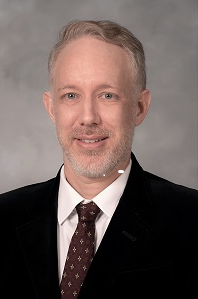
Brandon C. Downing is an Assistant Professor of History at Marietta College. He teaches early American history classes in Native and Colonial America, the American Revolutionary War, and in Public History. His primary interests are Native-White interactions in the Ohio Valley, the War of 1812, and the history of Marietta, OH. He is currently working on a project titled, “Performative Violence as Political Discourse: Delawares during the Seven Years’ War, 1755-1758,” which provides a Native perspective on the Penns Creek and Great Cove Massacres in Pennsylvania.
Why the West went to War in 1812
This talk answers the question: What was the link between western states and territories and the War of 1812? Investigating backcountry culture and its influence on shaping the Northwest Territory’s organization is central to understanding why settlers living in trans-Appalachia adamantly supported war against Great Britain and their Indian allies. Expressions of backcountry culture can be found in the petitions sent during Kentucky’s formative period of development when the qualifications of land ownership were still undecided. There is a common thread in the petitions that will help us to understand what backcountry settlers considered prerequisites for gaining title to their property in the new western lands. Meanwhile, the frequent and violent encounters with the Ohio Valley Indians justified, in the minds of the settlers, their claims to land ownership.
We Are but a Woman Nation
For more than 200 years, historians have largely misinterpreted the meaning of gender in Native society. The title of this talk comes from a quote made by a male Delaware Indian diplomat who was speaking to a visiting delegation from Pennsylvania’s colonial government. Because historians have identified the use of the word “women” as inferior, they have mistakenly believed this to be an insult to Delaware men. Among Native peoples, however, the metaphor represents the indispensable roles that Native women performed, which gave them significant status and economic power. This talk, therefore, examines Native and European gender roles, the written record, and how to extract a Native perspective from non-Native sources.
The Tedious March
This is a light-hearted talk about the travel narratives of John May’s journeys to the Ohio Country. In comparing the modern-day luxuries of travel to the difficulties of nineteenth-century travel, this talk provides perspective on what settlers had to overcome in order to make it to their destination. Listeners will receive insight about what it was like to meet new people in a foreign land, opinions on interesting food choices, less than conventional accommodations, and the otherworldly adventures of John May. After all, John May never had to book an airline ticket, pay for an expensive hotel room, or deal with long lines at a theme park. Did May, however, have the same aspirations for travel as we do in the modern world? This talk will cover all this and more.
Visions of the New Nation in the Northwest Territory
This talk examines Marietta as a cultural heritage site that serves a crucial role in redefining American collective history by reconstructing a national identity based on the Northwest Ordinance, one of the most important, progressive, and far-reaching legislative acts in American history. By using the interlinked aspects of place, Marietta’s importance as the “first organized settlement of the Northwest Territory” illustrates how it became the birthplace of equality through the preservation of the public domain. This is in contrast with the myth of freedom and independence of a seemingly limitless land. The lessons learned from Marietta as “place,” then, expands the American narrative by challenging our understanding of territorial expansion within the United States in the early nineteenth century.
TO SCHEDULE A PRESENTATION , PLEASE CONTACT:
Brandon Downing
brandon.downing@marietta.edu
740-706-2285
Speaker Applications
If your organization would like to book a speaker, first contact the speaker to confirm program dates, times, and whether or not the program will be offered virtually.
After you have confirmed scheduling details, submit a speaker request form to Ohio Humanities at least six weeks before the presentation takes place. Upon approval, we’ll send you a program agreement packet and ask you to pay the appropriate application fee to Ohio Humanities. Groups are limited to three Speakers Bureau programs per year.
Speaker Fee Structure
Non-profit organizations with an annual budget under $150,000 pay a fee of $50.00.
Non-profit organizations with an annual budget over $150,000 pay a fee of $250.00.
Schools (including colleges or universities) and corporate or private entities pay a fee of $400.00.
For any questions, please contact Program Officer Melvin Barnes at mbarnes@ohiohumanities.org.
